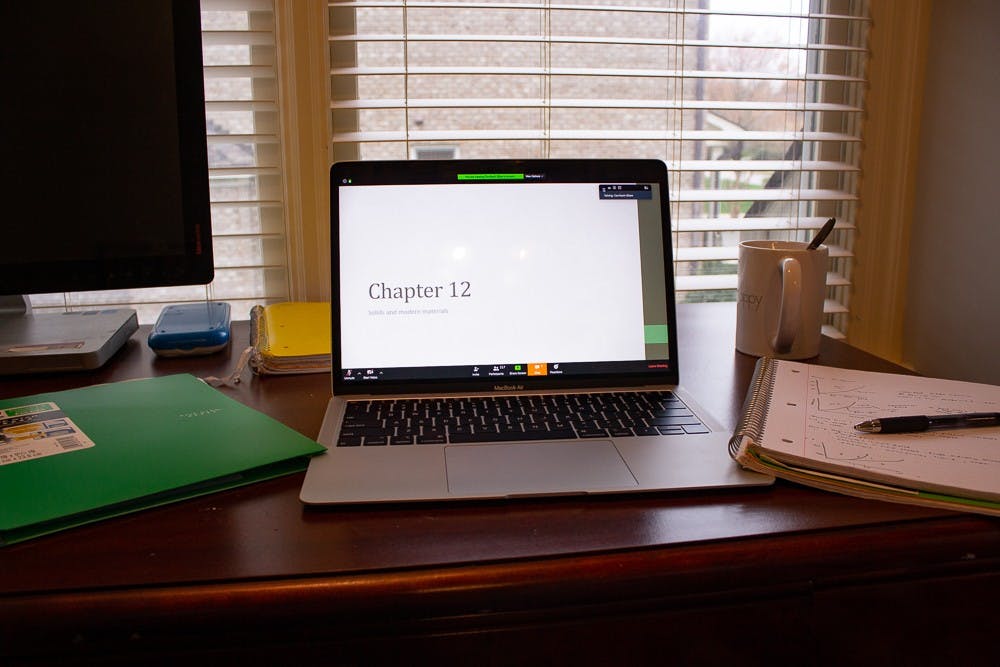The first day of online classes for UNC students and faculty began Monday, and with it came new course routines, mental health challenges and adjustments to remote instruction.
How class material is communicated online often depends on the discipline, class and instructor.
Viji Sathy is a psychology professor who teaches PSYC 210: Statistical Principles of Psychological Research and PSYC 89, a first-year seminar, this semester. As someone who had been using Zoom for office hours and meetings before the COVID-19 outbreak, she said the difficulty for her was not learning how to use the technology, but rather simulating the classroom environment.
Sathy held both of her classes Monday over Zoom. She said both went better than she expected, though it was easier to lead her PSYC 89 course of about 20 students than her larger lecture class.
But not all professors are following the same teaching model.
In biology professor Kelly Hogan’s BIOL 101: Principles of Biology course, students will receive recorded lectures instead of meeting together. They will then complete learning activities on their own time.
When designing her course for the rest of the semester, Hogan said she had inclusivity in mind.
“There is so much diversity out there,” she said. “For some students, maybe they’re in a rural area, and it’s bandwidth issues. But for other students, it’s not an issue around broadband, but they have a busy household.”
Hogan also pointed out that some students may have to seek employment to support their households because their parents are out of work.



